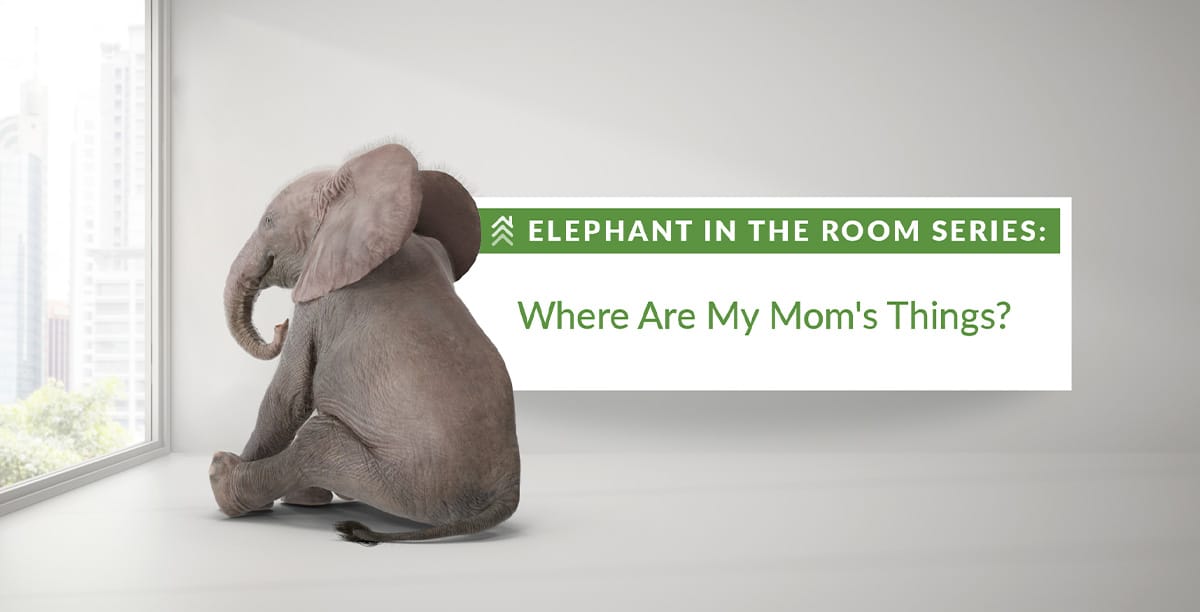
You arrive at your mom’s house for a visit and she tells you that someone is stealing from her. She can’t find her checkbook and thinks she’s missing other things, too. You can’t help but feel anxious. As you walk through her house, you notice that her cupboards and drawers look like someone’s ransacked them. You find toiletries in the kitchen drawers. Old photo albums and pictures have been packed into boxes.
A while back, you helped to locate her house keys. You found them in her freezer. You begin to feel concerned about memory issues instead of intruders. You’ve read about packing, collecting, and misplacing things as being possible symptoms of dementia.
Find Senior Living Near Me
The Signs
While you wait for her doctor to evaluate her, you stay at her house to ensure she’s safe. You locate her checkbook in her purse, which was hanging on the hook in her bathroom.
During your stay, you notice more and more differences. Her neighbors aren’t stopping by to visit. After speaking with them, you find out she accused one of stealing from her, and for another, she stopped answering the door.
While you clean her home, you find many extra canned goods in the cupboard and loaves of bread in the freezer. It appears she’s been buying multiples of her typical groceries for some time, which is confusing because she’s lost a little weight.
Finding Support
After visiting her doctor comes the news you hoped you would never hear: she has dementia. You consider support from adult day services so she can enjoy activities and have supervision during the weekdays, but you realize you’d rather be her daughter than her caregiver. It’s time for some help in a memory care community.
This all seems surreal, but thankfully, you receive excellent support in the memory care community you choose. They help you to feel heard. You feel better realizing your mom’s habits are common and that many other adult children are in your shoes. They connect you with their community support group to help you manage the emotions you’re feeling. You begin to feel hope that memory care is just where she can be safe and experience joy.
How to Pack for Memory Care
The helpful staff provides you with a packing list and reminds you that in memory care, other residents may collect and misplace things that aren’t theirs. They explain that bringing highly expensive or irreplaceable keepsakes is not a good idea. While everyone is well-supervised, if items are brought out into the common areas, they may be shared picked up, or go missing.
The social worker at memory care explains that sometimes, those experiencing dementia won’t be able to explain what they’re doing or feeling. If they have the energy to move, they may look for a familiar task they remember – like cleaning up the living area. They may pick up items and bring them into their room or put them into drawers or cupboards around the community. The social worker explains that families often return items that their loved ones gathered up, but unfortunately, they may stay missing, too. The best way to avoid that is to pack with care and the following helpful hints in mind:
- Label any items that you bring to her apartment.
- Leave space in drawers and closets so frequently needed items can be easily located (sometimes labeling drawers with the contents is also helpful).
- Avoid leaving credit cards or large sums of money with your mom.
- If she has a favorite book, DVD, or CD, consider buying duplicates so you can replace any that might end up misplaced (thrift stores are excellent places to find duplicates).
- Hang copies of your family pictures versus originals.
- Bring several sets of things she needs each day, like sheets/blankets, pants, and shirts, in the event one set is in the wash or does, unfortunately, go missing.
- Don’t leave expensive or irreplaceable keepsakes at memory care if you can avoid it.
Mom should have the things that make her comfortable, but not so many that staff is constantly on the hunt. At Edgewood, we encourage residents to have items for comfort but also only what’s necessary. Because we provide entertainment, meals, cleaning, and laundry, there’s no need to have everything in your mom’s apartment.
Our primary focus is on keeping your mom healthy and safe. We encourage staff to spend the majority of their time meeting each resident’s needs rather than trying to track down lost items.
If there are family heirlooms or expensive items that your mom enjoys, bring them in for your visits. You might find that doing so helps her experience fond memories and gives her an opportunity to tell you all about the items. This will also ensure that they don’t become lost.
Dementia-Friendly Support at Edgewood
Our staff at Edgewood is specially trained to help residents with dementia in a way that makes them feel supported and maintains their dignity. We take time to get to know our residents’ history and which activities they enjoy. We also learn about their daily habits and things that they may dislike, gaining insight into how we can be helpful.
Instead of trying to stop someone from doing a specific activity (like gathering other people’s items, for instance), we find alternatives. Sometimes, that’s asking for their help folding a basket of towels or encouraging them to join a group activity. We find creative ways to make our communities healthy and happy for everyone.
We offer life stations with items from the past, like toy cars, tools, necklaces, hairbrushes, and baby dolls. These stations help us to create happy moments and sometimes help to jog long-term memories to make your loved ones smile. We don’t address anyone’s behavior by explaining they can’t/shouldn’t pick up other people’s things; we understand that’s just a part of dementia. The life stations and activities we offer help us to meet those with dementia where they are. When someone has supervision for safety, daily care, healthy meals, and activities that give them purpose, they can thrive in our memory care communities.
Dementia can be challenging, but helping mom to be happy and comfortable doesn’t have to be. If you haven’t checked us out yet, let us know how we can help support your mom. Reach out to us at info@edgewoodhealthcare.com.




